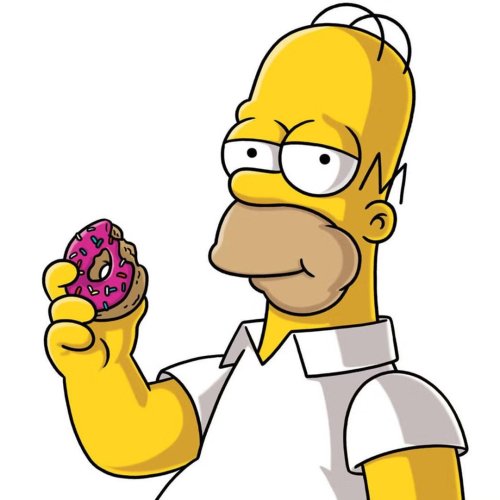
Twins Video
As a follow up to someone that writes about the game, it only seems natural to check with a woman that tells stories through a different medium. Having made her own trek through the minor leagues before debuting in The Show, Melanie Newman can now (or will as 2020 gets underway) call herself a big leaguer.
The Georgia native has worked as a broadcaster at both the High-A and Double-A levels. She’s been a sideline reporter for Division 1 college athletics, and both MLB and ESPN have employed her directly. Now the long time Red Sox fan joins the Baltimore Orioles and calls a new team home.
I caught up with her recently to talk about the journey:
Twins Daily: You've been multi-talented and focused on a plethora of sports since breaking into the media scene. When did it become clear that baseball was your calling and that's where you wanted to focus?
Melanie Newman: I always knew I wanted to specialize in baseball but also had learned in college that performing as a multi-sport journalist widened my chances of employment. Bob Rathbun sat down with me to review my work and chat soon after graduating and he affirmed to me I needed to give baseball a bigger piece of my attention. So, while I always stayed vigilant in studying other sports right down to cornhole, I've fought the hardest to have just about any role in baseball.
TD: Everyone in baseball understands the ladder progression through a system. In your baseball career you've gone from minor league positions to now working with a big-league club. How has that helped to shape your drive, and what challenges does each new level present?
MN: I will always adore my time in the minor leagues because it is so unique and a chance to really understand not just the game but the players. You see the sacrifices and the grind at a new level on those 12-hour bus rides. Broadcasters aren't exempt to those conditions. Sometimes the late hours and no days off catch up to you, but once you find your stride (usually the fifth week every season), things smooth out, you adjust to those 3-hour sleeps. If anything, it's proven to me that I DO want to be here and how much I appreciate this world. I also better understand what it takes for a game to even happen, from the sales staff to the groundskeepers, then multiply that immensely at the Major League level! I could not do an ounce of my job without the village of staff who make it happen, including PR, digital media, producers and editors.
TD: Now working with a Major League club, do you feel like you need to re-establish yourself all over again, or is credibility built on your brand? As a female, is there an additional sense of responsibility being representative of opportunity beyond just yourself?
MN: Breaking into the Majors feels two-fold: I absolutely am not changing who I am, because who I am is why I was hired. If I tried to be like another big league broadcaster, that just creates a duplicate in the industry and the beauty of every single broadcaster in any sport is while we might have similarities, we are each unique because we found certain aspects of how to do the job that speak to us on a personal level more than others. For example, I felt called to the humanizing niche of story telling, why humans are the way they are and how that shapes them into the athlete they are - what makes them laugh, the people in their life who got them here, etc.
The second side is that while I am sure of who I am, that doesn't mean I can't develop and improve. I'm lucky to have a good team of peers and mentors to help me better my craft every day. According to the outside world, you are supposed to have more responsibility as a woman. While I am aware that my actions are more heavily scrutinized, I know how I was raised as a person and how I was trained to be a professional, I expect to behave at the same high caliber as every other respectable broadcaster, regardless of gender.
TD: We're starting to see a female presence emerge in coaching and gameday operations for teams. You have been a pioneer on the broadcasting scene in multiple different stops. Do you feel like your success has helped contribute to that, and how can you continue using your platform so we can see talent no matter where it comes from?
MN: I really would never take credit for females enterprising in the various roles of any sport. I will say it's so awesome that it's becoming more frequent to run into a female counterpart whether in the offices or at the facilities and getting to further pick their brains on how their particular role is unique and why they've pursued it. Going out every day and doing my job at a high level, that's what speaks and engages others to know that no matter their orientation or background, your dreams don't discriminate. It's also important to go out into the community, to engage with younger kids and just be a friendly person, there's no need to have a wall up around children.
TD: Knowing that you have Red Sox fandom in your blood, it has to be different working for an organization in a division you grew up getting to know. How exciting is it to learn the Orioles organization from the inside, and what are you most looking forward to when we get back on the field?
MN: I am very appreciative of my time in the Boston organization, especially to have grown up with New England family roots. I have had the pleasure of working for multiple organization's and I'm fortunate that a professor taught us to set aside fandoms in job hunting because the wealth of amazing people I've come to know across the entire country fills my heart. Baltimore's enthusiasm and the immediate synergy was hard to ignore. I felt like family within an hour of meeting the staff and hoped they felt the same (which I would argue now, they did). I just can't wait to step into Orioles Park at Camden Yards, knowing I am a part of this amazing organization and to see the incredible memories we will get to build together.
TD: Baltimore has struggled at the big-league level of late, but have some really talented prospects. As someone who's worked on the minor league scene, how excited are you to be able to cover those stories and monitor that progress?
MN: The minor leagues will always hold a special place in my heart and there is a deeper appreciation when you've been in the bottom levels to work your way up. I was fortunate to call games against two of Baltimore's affiliates last year so oddly enough when I was hired, it felt like I was more familiar with more of their minor leaguers than their major leaguers. The work Mike Elias and his team have done to select the best talent out there in building the future is absolutely exciting, the way they are training and honing each player's talents is a multi-level process that is developing both the athlete and the human being.
TD: Let's end it with a surviving quarantine question. We all want baseball back and living through this sports-less time for the country has certainly been suboptimal. What have you been doing to keep busy? On off days, how do you give yourself a reset?
MN: My days are pretty consistent between Spanish lessons, reading baseball articles and listening to other broadcasts/broadcasters, going for runs and spending family time. It's not flashy or exciting but the consistency of routine has been key!
Follow Melanie and check out her work here. Check back in next week for entry number three in this four-part series.
MORE FROM TWINS DAILY
— Latest Twins coverage from our writers
— Recent Twins discussion in our forums
MORE FROM TWINS DAILY
— Latest Twins coverage from our writers
— Recent Twins discussion in our forums
— Follow Twins Daily via Twitter, Facebook or email
— Become a Twins Daily Caretaker






Recommended Comments
Join the conversation
You can post now and register later. If you have an account, sign in now to post with your account.
Note: Your post will require moderator approval before it will be visible.